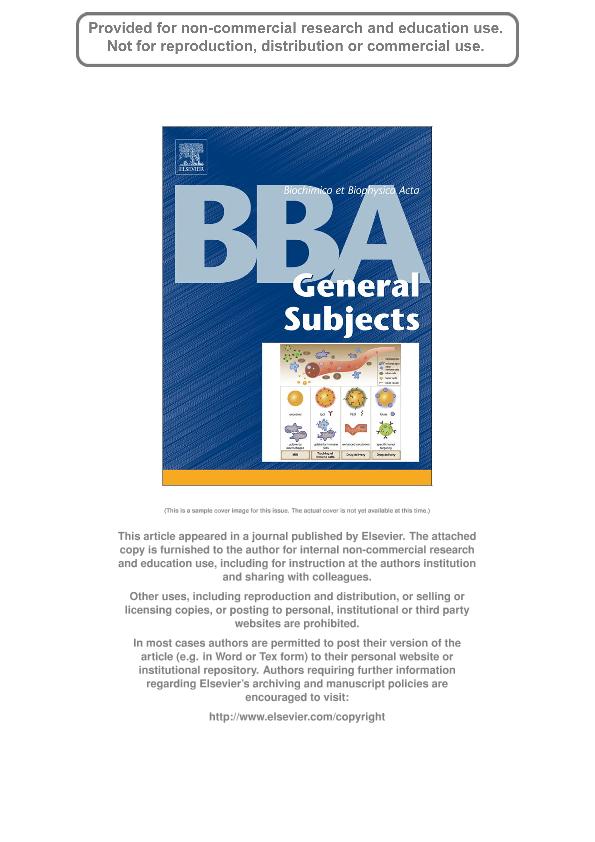Artículo
Cytotoxic effects of copper overload on human-derived lung and liver cells in culture
Fecha de publicación:
07/2012
Editorial:
Elsevier Science
Revista:
Biochimica et Biophysica Acta- General Subjects
ISSN:
0304-4165
Idioma:
Inglés
Tipo de recurso:
Artículo publicado
Clasificación temática:
Resumen
Background: Copper (Cu) is an essential trace metal used as a catalytic cofactor for many enzymes. However, it can have nocive effects when it participates in the Fenton reaction, producing reactive oxygen species (ROS). Excess Cu is present in the plasma of patients with diseases in which cell survival is crucial. In order to investigate the effect of Cu overload on the induction of cellular damage we chose two human cell lines derived from liver (HepG2) and lung (A-549) as representative cells exposed to exogenous (polluted air) and/or endogenous (systemic) Cu overload. Methods: We studied ROS production using thiobarbituric acid reactive substances (TBARS) and fluorimetric measurements with dichlorofluorescein, cell viability by the trypan dye exclusion test, the methyltetrazolium (MTT) and lactate dehydrogenase leakage (LDH) assays, various cytotoxic indexes, and caspasa-3 and calpain-dependent activation as the main signals involved in the apoptosis pathway. Results: Cu overload induces cell death by a differential activation of calpains (m- and μ-) and caspase-3, and modifies various proliferative indexes in a cell-type and concentration-dependent manner. The involvement of these two protease systems and the response of the two main Cu homoestatic proteins ceruloplasmin and metallothioneins are specific to each cell type. We demonstrated that Cu can trigger cell death by activation of specific protease systems and modify various proliferative indexes in a cell-type and concentration-dependent manner. General significance: These findings contribute to understanding the diverse effects of Cu overload on the pathogenesis of human diseases like cancer, cirrhosis and degenerative disorders.
Palabras clave:
Apoptosis
,
Cell Division
,
Copper
,
Liver
,
Lung
,
Oxidative Stress
Archivos asociados
Licencia
Identificadores
Colecciones
Articulos(INIBIOLP)
Articulos de INST.DE INVEST.BIOQUIMICAS DE LA PLATA
Articulos de INST.DE INVEST.BIOQUIMICAS DE LA PLATA
Citación
Arnal, Nathalie; Tacconi de Alaniz, María J.; Marra, Carlos Alberto; Cytotoxic effects of copper overload on human-derived lung and liver cells in culture; Elsevier Science; Biochimica et Biophysica Acta- General Subjects; 1820; 7; 7-2012; 931-939
Compartir
Altmétricas




